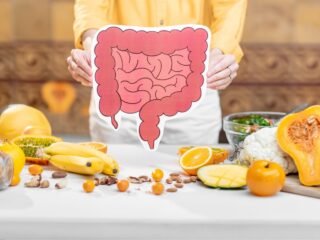New Delhi, 14 August 2025: Trying to conceive after the age of 40 is not impossible — but it does come with unique challenges. Fertility naturally declines with age, especially after 35, and by the time a woman reaches her 40s, both the quantity and quality of eggs start to decrease significantly. However, many women in their 40s do go on to conceive and deliver healthy babies, often with the help of simple lifestyle changes and medical guidance.
In this article, a gynecologist shares essential lifestyle tips that can boost your chances of getting pregnant naturally after 40.
Why Is It Harder to Conceive After 40?
Women are born with all the eggs they will ever have. As time passes, the number and quality of these eggs decline. After 40, this decline accelerates, making it more difficult to conceive naturally.
Other factors like hormonal changes, irregular ovulation, uterine or fallopian tube issues, and underlying health conditions can also reduce fertility. But there’s still hope — and your lifestyle plays a huge role in supporting reproductive health.
1. Track Ovulation Accurately
Understanding your menstrual cycle is crucial. After 40, cycles can become irregular, so using ovulation predictor kits (OPKs), tracking basal body temperature (BBT), or using fertility tracking apps can help identify your most fertile days.
Tip: Time intercourse around ovulation (usually 12–14 days before your next period) to increase the chance of conception.
2. Eat a Fertility-Friendly Diet
Nutrition has a direct impact on hormone regulation and egg quality. Focus on a balanced diet rich in:
- Leafy greens, berries, whole grains
- Healthy fats like olive oil, avocados, and nuts
- Lean proteins such as lentils, fish, or chicken
- Antioxidants to reduce oxidative stress
Avoid processed foods, excessive sugar, and trans fats.
3. Maintain a Healthy Weight
Both being underweight and overweight can negatively affect ovulation. Aim for a BMI between 18.5 and 24.9. Regular, moderate exercise (like walking, yoga, or swimming) can support fertility while reducing stress.
4. Quit Smoking and Limit Alcohol
Smoking accelerates egg loss and ages the ovaries, while excessive alcohol consumption disrupts hormonal balance. Women trying to conceive after 40 should completely avoid smoking and limit alcohol to occasional light consumption or eliminate it entirely.
5. Minimize Caffeine Intake
High caffeine intake has been linked to reduced fertility. Keep it under 200 mg per day (about one 8-oz cup of coffee).
6. Manage Stress Effectively
Stress can interfere with ovulation and hormone production. Practice stress-reducing activities such as:
- Meditation
- Deep breathing exercises
- Nature walks
- Journaling
- Support groups or therapy
Mental wellness is as important as physical health during the conception journey.
7. Take Fertility-Boosting Supplements
After consulting a gynecologist, consider supplements such as:
- Folic acid (400–800 mcg daily)
- CoQ10 to improve egg quality
- Vitamin D, B12, and Omega-3 fatty acids
- Prenatal vitamins
These nutrients support reproductive health and fetal development from the very start.
8. Limit Exposure to Toxins
Reduce your contact with endocrine-disrupting chemicals found in plastics, pesticides, household cleaners, and cosmetics. Switch to BPA-free containers, natural cleaning products, and avoid reheating food in plastic.
9. Consult a Fertility Specialist Early
If you’ve been trying to conceive for 6 months or more without success after age 40, it’s time to consult a fertility expert or gynecologist. They can run tests to assess your ovarian reserve, hormone levels, and overall reproductive health.
Early assessment can help you decide whether to continue trying naturally, consider IUI/IVF, or explore other fertility options.
10. Stay Positive and Patient
While the journey may be more challenging, many women in their 40s do conceive naturally. Focus on what’s in your control, stick to healthy habits, and maintain a hopeful mindset. Surround yourself with supportive people and don’t compare your journey to others.
Getting Pregnant After 40: Here’s What To Know
Getting pregnant naturally after 40 is not just about age — it’s about preparation, persistence, and making the right lifestyle choices. From tracking ovulation to eating right and managing stress, every small change counts.
Consult a gynecologist regularly, listen to your body, and take proactive steps toward your fertility goals. With the right approach, you can increase your chances of conceiving naturally and enjoying a healthy pregnancy.







